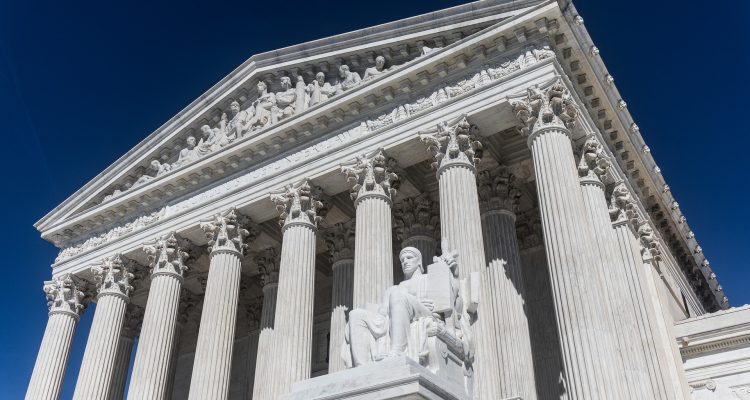After a streak of highly controversial decisions at the end of their 2021-2022 term, the United States Supreme Court is back in session with cases ranging from environmental laws to federal elections and racial gerrymandering to the never-ending issue of freedom of speech and social media.
Now, the nation’s highest court is weighing a new socio-political fight: whether it is constitutional and fair to include the consideration of race as a factor during the college admissions process, a policy often referred to as affirmative action.
The court is hearing the issue after it accepted two challenges brought against Harvard University and the University of North Carolina by the Students for Fair Admissions during the summer, a group that believes “that racial classifications and preferences in college admissions are unfair, unnecessary and unconstitutional.”
They claim that Harvard’s admissions process discriminates against Asian Americans and that UNC is discriminating against White and Asian students. As such, they ask the court to “hold that all institutions of higher education cannot use racial or ethnic classifications and preferences as factors in admissions.”
The reasoning behind their lawsuit is based on the group’s claim that both universities violate the Civil Rights Act by choosing to consciously discriminate against Whites and Asians by rejecting “workable race-neutral alternatives.”
Nevertheless, both institutions are fighting to save affirmative action in their admissions processes, which has recently become an issue in today’s highly polarized political landscape.
In a letter to the Harvard community, President Lawrence Bacow addressed the university’s lawsuit by affirming that the case is a “threat to educational opportunity for millions of young people,” while also arguing that affirmative action brings a “wealth of education benefits to a high-quality educational enterprise.”
The chancellor of UNC-Chapel Hill, Kevin M. Guskiewicz, made a similar plea encapsulated around one statement: “diversity is essential to our democracy.”
“On Monday morning, Carolina will be in the national spotlight […] arguing before the U.S. Supreme Court that diversity on campus is essential for educating American citizens,” said Guskiewicz. “We are making that case not only for UNC-Chapel Hill, but for the thousands of colleges and universities that have worked for decades to provide the opportunity of higher education to all Americans who want to go to college.”
As part of his address to the Chapel Hill community, he argued that removing race as one of the factors for their admissions process would “jeopardize” the university’s commitment to “build better citizens.”
Both institutions are defending a 2003 Supreme Court case that upheld the use of race in college admissions to “further a compelling interest in obtaining the educational benefits that flow from a diverse student body.”
However, during the Oct. 31 hearing, two conservative-leaning justices seemed ready to reverse the use of affirmative action in public and private institutions once it hits its expiration date of 2028, a phase-out date suggested by then-Justice Sandra Day O’Connor in her 2003 “Grutter v. Bollinger” opinion.
Justice Amy Coney Barrett, during her questioning time, explored this theory of a 25-year phase-out timeline for affirmative action.
“We’re not to that 25-year point yet, right? So, if it has its own self-destruct mechanism where it says like, ‘Hey, Grutter says we’ve got to call it quits because they’re just not working,’ are we obligated to give more time?” asked Coney Barrett as reported by Politico.
Ketanji Brown Jackson, the court’s first Black woman and its newest member, debated with the Students for Fair Admissions lawyer whether eliminating affirmative action would cause “more of an equal protection problem than it’s actually solving.”
It is still unclear how the replacement of affirmative action with “race-neutral” admissions would affect the admission and enrollment of racial minorities to the nation’s most elite universities and other predominantly white institutions like Fairfield.
Even though Fairfield University doesn’t explicitly mention using “affirmative action” in the admissions section of the school’s website, they have established a commitment to “recruiting a more diverse community of students including (and not limited to) students of color, students from under-represented backgrounds and first-generation students.”
Essentially, the university’s Diversity and Inclusion Excellence Narrative serves as a platform to carry out the vision affirmative action tries to fulfill, which is to recognize and work to eliminate the barriers causing unequal access to higher education.
A federal prohibition on the use of affirmative action would be detrimental to the little progress Fairfield has made toward increasing racial and ethnic diversity in the past few years. And more worrisome is the fact that we have remained silent about this national issue instead of coming out and supporting, as other 40 universities around the country have done, the efforts of Harvard and UNC.


Leave a Reply